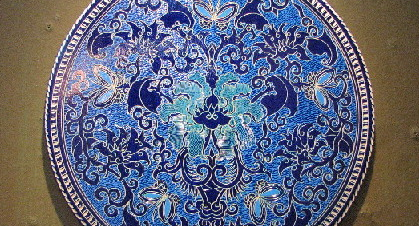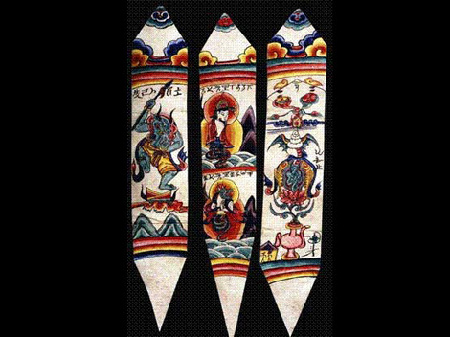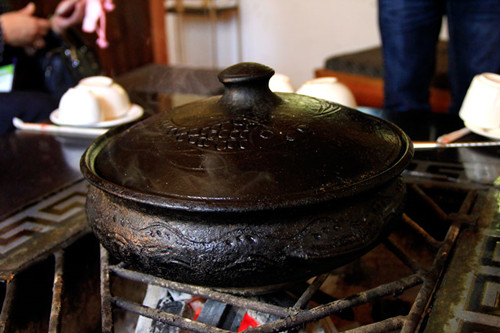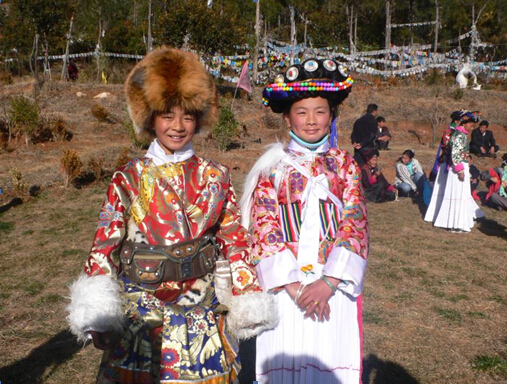Matriarchal tribe's customs in compromise
(Xinhua)
True Mosuo
For Erqing and Duoji, inspiration came from their small exhibition room.
With 800 items on show, mostly old photos on the subsistence life of the Mosuo people and the articles they use in daily life and work, the gallery opened to the public in 2001. It cost them about 500,000 yuan but has proven very lucrative.
The two now plan to expand their gallery into China's first private Mosuo Culture Museum. The project, financed by loans and savings, will cost 900,000 yuan.
"I think the unique qualities of the Mosuo people may well enable the tribe to survive and prosper. But that should be based upon the integrity and authenticity of our culture," said Erqing. "That's why we want to build the museum to tell the world about the true Mosuo."
Over the years, the two noticed through visitors at their guesthouses that some tour guides had purposely distorted local custom to spice up their business.
"When talking about the Mosuo, the first thing in people's minds is always 'walking marriage'. Tourists seem to think that is what our culture is all about," said Duoji.
"Some mistook 'walking marriage' as type of promiscuity and a few even came here to seek a one-night stand," Erqing lamented.
"Our relationship is not like a game. It's based on love and not bound by laws, religion or money," he said. "As children are raised by a bigger family, the parents feel less stressed. Quarrels between husband and wife and rivalry between mothers-in-law and daughters-in-law are thus averted."
Erqing and his Axia, the Mosuo word for wife, for instance, knew each other since childhood. Although local custom allowed men to visit women after the man reached puberty, usually at age 13, Erqing didn't walk into her room until he was 26.
The visiting relationship is not casual. There are formal ceremonies, too. When a couple fall in love, the man needs to ask a match-maker to send gifts, including candy, to his sweetheart's home. In return, the young woman's mother will give the man linen trousers that her daughter has made and send the man's gift of candies to her neighbors.
"And we are forbidden to discuss sex and 'walking marriage' openly, especially in the company of our grandmother or siblings," said Duoji.
"Most of the Mosuo people fall in love only once or twice. Men would no longer want to walk back and forth if they had children. They would settle down," Erqing said.
With two daughters, one aged 11 and the other six, Erqing said that his Axia was the only one in his life. "We live apart, but we promised not to betray each other," he said.
Erqing sees his daughters every day.
"My Axia is illiterate. I give my daughters after-school tutoring. They are happy with it and often come to find me. Our 'walking marriage' has lasted for 12 years. I want it to last longer," he said.





